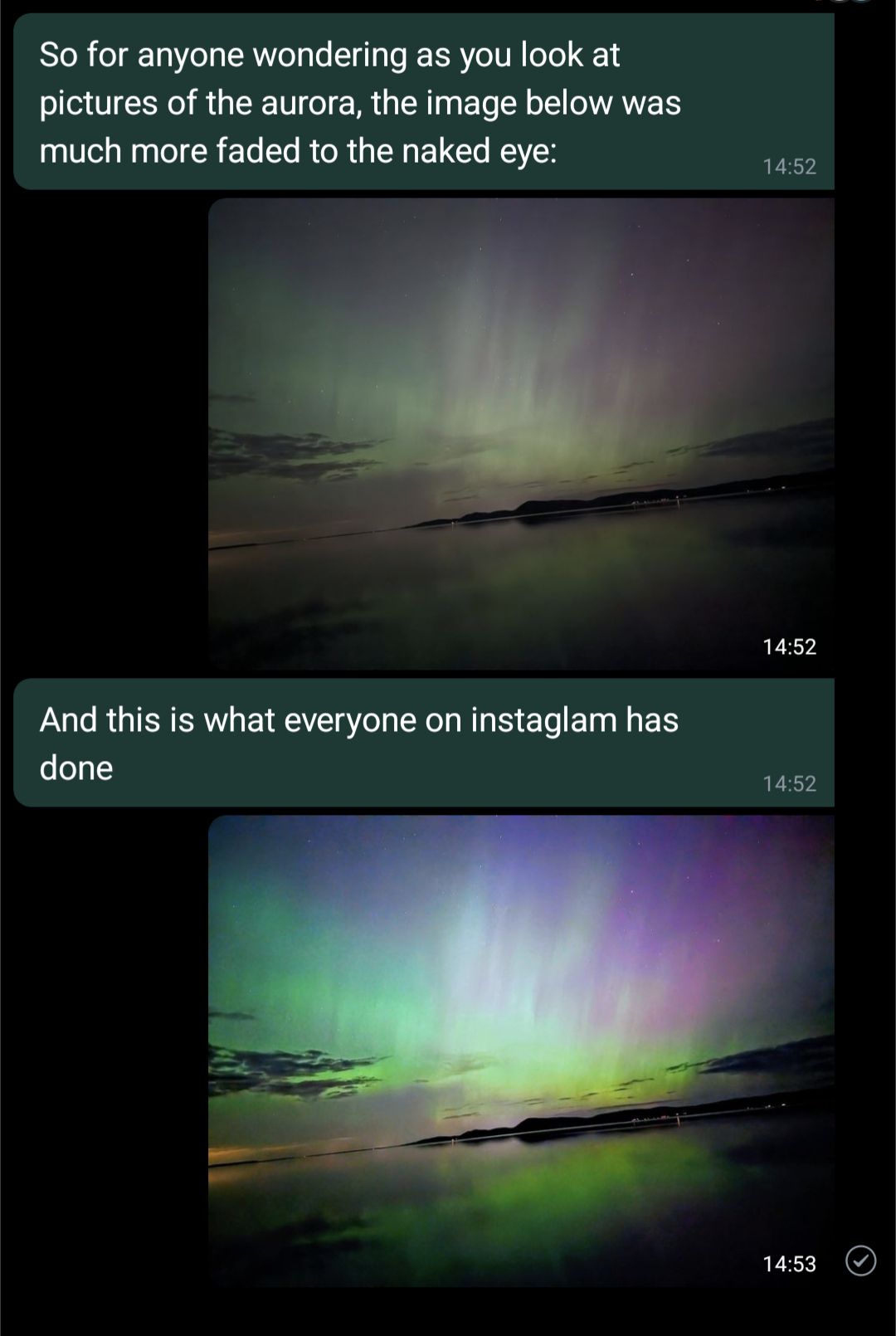this post was submitted on 12 May 2024
2 points (100.0% liked)
pics
19546 readers
433 users here now
Rules:
1.. Please mark original photos with [OC] in the title if you're the photographer
2..Pictures containing a politician from any country or planet are prohibited, this is a community voted on rule.
3.. Image must be a photograph, no AI or digital art.
4.. No NSFW/Cosplay/Spam/Trolling images.
5.. Be civil. No racism or bigotry.
Photo of the Week Rule(s):
1.. On Fridays, the most upvoted original, marked [OC], photo posted between Friday and Thursday will be the next week's banner and featured photo.
2.. The weekly photos will be saved for an end of the year run off.
Instance-wide rules always apply. https://mastodon.world/about
founded 1 year ago
MODERATORS
you are viewing a single comment's thread
view the rest of the comments
view the rest of the comments


I am all with you on editing images and creating a "fake" reality on social platforms.
But this poses the question: how much has digital tech become part of our perception and is digitally enhancing a picture really much of a difference if it just helps us see more of the actual reality? I don't think increasing exposure and contrast is changing reality, it just squeezes down what we cannot see so easily and makes it visible in that narrow slit that our human perception can actually process. We use digital editing nowadays that it has become part of our whole process of perceiving reality, so much so that the digital picture litterally replaces what we saw with our eyes - simply because digital photography has become an extension, much like glasses, shoes, cars are litterally a part of our body.
Imho as long as it doesn't create pixels from scratch that weren't there in the first place, it is still viable to polish a picture of the sky to make it more appealing. I mean no buttcheeks were enhanced here, no eyes replaced or lips turned i to a grotesque sausage mouth freakshow 😅